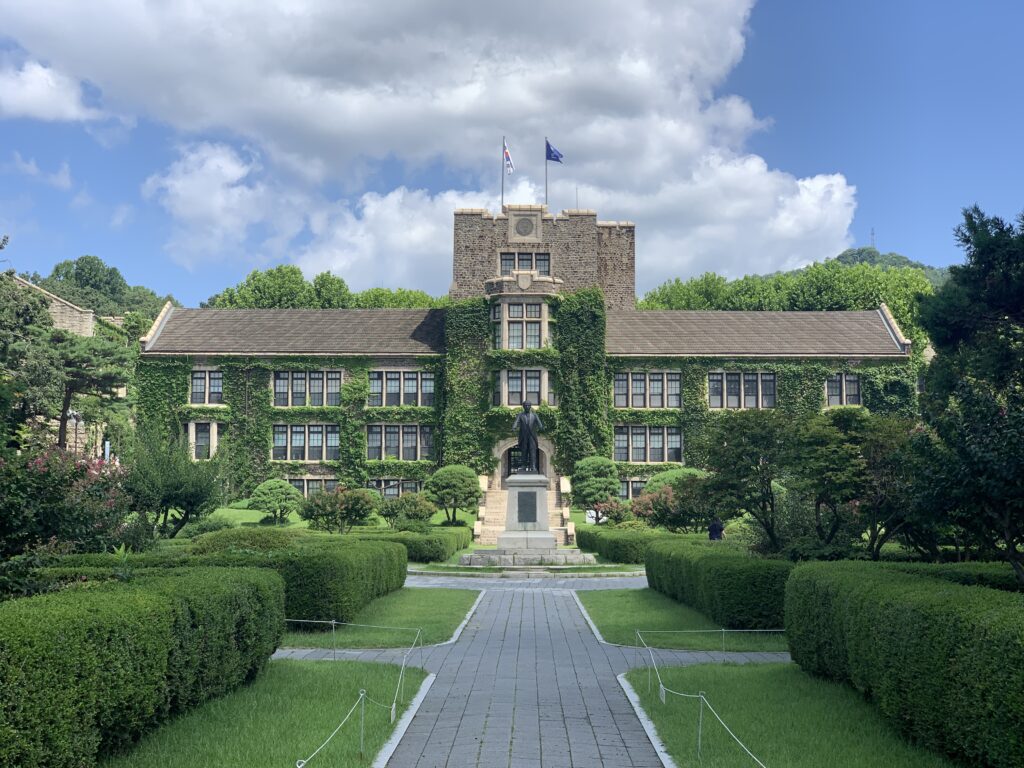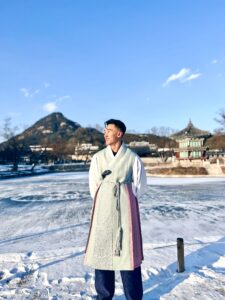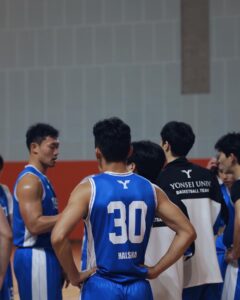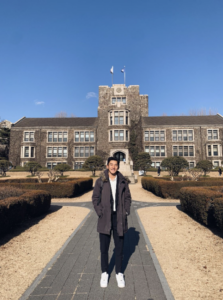Heart and Seoul
Guest Post By: Joshua Lee, a Junior studying Marketing and Information Systems. He is a Global Business Center Study Abroad Scholarship Recipient, and he studied abroad through a Foster Exchange and Direct Enroll at Yonsei University in Seoul, South Korea, during Autumn Semester 2022.
Link to the Original Publication on LinkedIn.

Choosing to study abroad in the motherland was one of the best decisions I’ve had the privilege to make.
What does it mean to know one’s own culture?
This question is one I seriously pondered as I matured and grew into my own identity as a Korean-American. Only after leaving my homogeneous small town community of 10+ years did I recognize the narrow world view I’d subsequently developed. Even having been on various diversity panels and having numerous culturally representative positions throughout high school, I discussed issues of diversity without fully understanding my own.
And so I made it my goal to seek to understand what my heritage, the culture of my parents, means to me.
Over the past 4 months in Seoul, I learned invaluable lessons that I cherish dearly; in this article I share my reflection of these things in retrospect.
Liability of foreignness
Even as an ethnic Korean, I felt my differences right away in my mannerism, clothing, and overall lack of understanding of daily cultural nuances.
My attire, for one, was conspicuous – as I wore bright colors which starkly contrasted Korea’s streamline, neutral color palette of clothing. Those outfits quickly made it to the bottom of my cabinets and rarely made it back out.
There were a few instances early on that, upon being seated, I waited for the waiter to come back to order my food – as would be in the states. I soon realized that shouting for the waiter was not considered rude, but was rather commonplace.
I starved for lunch frequently as almost every restaurant had break time from 3:00 PM that I miscalculated my schedule around.
I was (thankfully) caught early on pressing the pedestrian button for crosswalks and busy intersections. Shortly after, I was informed that the button is for blind folks to audibly know when to cross.
Sitting with my grandparents in their traditional home reminded me not only of the importance of family, but also of my inflexible hips. Sitting at the 소반 (traditional folding Korean tables) left me uncomfortably folding my legs or straightening them, never finding a happy medium.
When I spent time with 꼰대 (oldies who stick to traditional Korean values), I missed cues of when to stop eating (once the oldest at the table is finished), professional speaking dialect… things that can only be understood with time.
Global business understanding
Through the Foster School Undergraduate Exchange with Yonsei University, I truly had an advantageous opportunity to take courses abroad which directly translate to credits I’d take back home in Seattle. Though all my courses were taught in English, it was intriguing to see business concepts applied globally. Particularly in my organizational behavior course, we interviewed company employees and team leaders who extensively described the domestic work culture for our project.
“But if you fail and waste your budget, you will be audited and disciplined.
Some people get cancer while working overtime to make the project a success.”
– interviewee from confidential Korean company (translated from Korean)
Recently, the Korean overwork culture has somewhat subsided as work-life balance has grown as a point of emphasis in corporate culture; yet, we see that it still exists between the lines.

A theory I saw embodied frequently was Hofstede’s dimension of high context culture. South Korea overall demonstrates a courteous yet high context culture, where formal communication is standard and much of business positions come via connections and network.
Opportunity engagement

공오친 gameday
Through my passion for basketball and an existing connection living in Korea, I took on a part-time job to coach elementary students at an international school. Teaching basketball at such a basic level reminded me of the raw love of the game that children hold, and how a childlike enthusiasm generates curiosity and prompts questions.
I also took advantage of basketball leagues to play in, including a foreigner league “Project Ball” and Yonsei club team “공오친”. Both allowed me to express myself in a space I’m familiar with, and curated a community in their own unique ways.
Project Ball plays a western style of basketball and allowed me to connect with foreigners from around the world, whereas 공오친 plays a Korean style I’d not been acclimated to and helped me find a Korean community I’d been seeking from my study abroad.
Both fostered growth and left me with connections I hope to stay in touch with despite the distance.
The power of vision
Over the summer of 2021, I visited Korea for the first time in 15 years with my family and tangibly felt the disconnect resulting from my time and distance away. During this trip, I had the chance to visit Yonsei University’s campus, a member of Korea’s SKY universities – deemed one of three most prestigious institutions in the country. I immediately felt compelled to take advantage of studying abroad; in doing so, I sought to connect the bridge between my education and cultural background. Through proactive steps in application, scholarship, and by the wonderful grace of God, things came to fruition.

I took the picture heading this article in August 2021; one year and 4 months later, I found myself standing in front of the building having completed my semester at the school. Hence in such instances I’m convicted that having a concrete vision, believing in it, and taking action are some of the most powerful tools humankind is blessed with.
I will cling to these lessons as I seek to build international business relations that will one day land me back in Korea.
